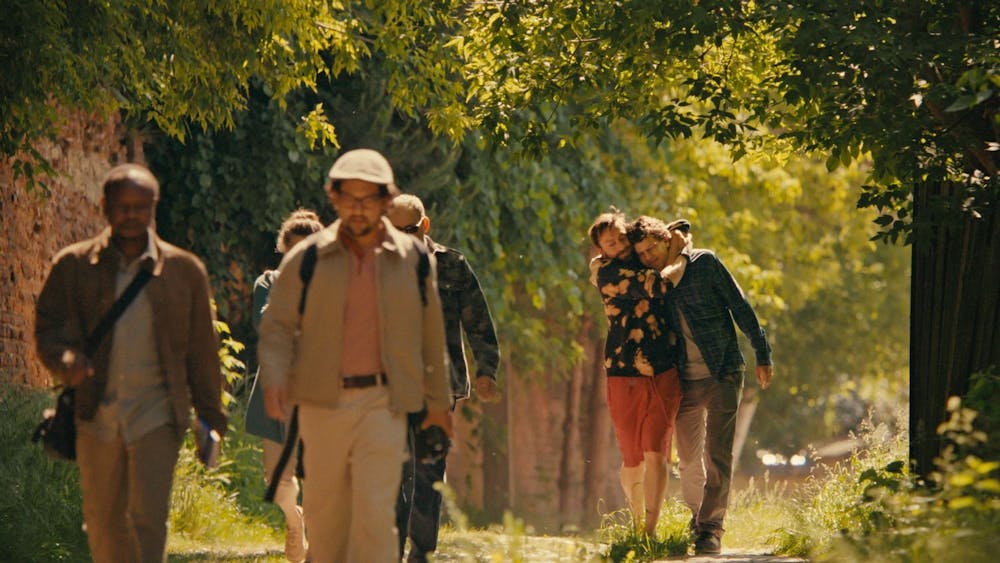“A Real Pain” follows cousins David Kaplan (Jesse Eisenberg) and Benji Kaplan (Kieran Culkin) as they embark on a tour across Poland to discover more about their Ashkenazi Jewish heritage and visit their recently deceased grandmother’s childhood home. This nuanced comedy film blends the raw emotions of grief with incredible moments of cathartic conversations. Benji’s constant outbursts and David’s uptight personality come into constant conflict with each other over the course of the film, leading to a tense emotional climax.
Benji has always been larger than life; his free spirited and impulsive tendencies paired with his innate sense of empathy are heavily contrasted with David’s organization, constant stress and level headedness. While David and Benji are very different people, their mutual care for each other brings them closer as they both deal with the resurfacing grief of their grandmother’s passing.
The film balances the feelings of pain and pleasure that come with discovery, as seen with Benji’s erratic relationship with how he processes his grief.
Eisenberg, who wrote, directed, produced and starred in the film, cultivated a perfectly unique tone. In a similar vein to Richard Linklater’s “Before Sunrise,” “A Real Pain” is a film that is based in dialogue and human interactions. We get to experience what it feels like to be human, in the forms of authentic pain, love, humor, trauma and healing.
Arguably, the most impressive aspects of the film were not the stellar acting performances, but rather from the score, sound design and cinematography.
Every shot either directly added to the plot or showcased the setting. There are many urban and landscape shots that simply serve to highlight the beauty, novelty and uniqueness of the setting.
Eisenberg made the conscious decision to film in Poland to make the movie feel as authentic as possible. They filmed on location in Warsaw and Lublin, as well as in Majdanek, the site of a Nazi concentration and extermination camp.
One of the most captivating aspects of the film is the thoughtful choice of music. The piano-heavy score perfectly encapsulated the majesty and subtle beauty of the surroundings and the two leads’ growth.
The music played fairly consistently throughout the film and was usually upbeat and jovial. The music stops the moment the two cousins step foot into the camp, making it by far the most powerful sequence in the film.
The scene in question happens at the end of Benji and David’s tour of Poland, where the group embarks on a silent journey into Majdanek. This sequence comes at a pivotal moment in the film, as it is contrasted with Benji and David’s rising tensions in the scenes prior. At this point, the film slows down and reminds the audience why the two cousins are really here.
While they walk around, the audience hears only ambient noises — nothing else. We see a stripped-down reality with no sense of protection or shield.
This is, to my final point, one of the defining aspects of the film. It is a real pain, a pain that the characters must come to terms with. It is not surface level, but very real.
“A Real Pain,” like so many other films I love, is a story about humans and how they wrestle with adversity, either with others or themselves. We get to see the beauty and tragedy of true personal growth and how it’s a necessary hurdle to become the person you need to be.
This article was edited by Alfie Pritchard, Marina Zaczkiewicz and Abigail Turner. Copy editing done by Luna Jinks, Olivia Citarella, Emma Brown and Charlie Mennuti.





